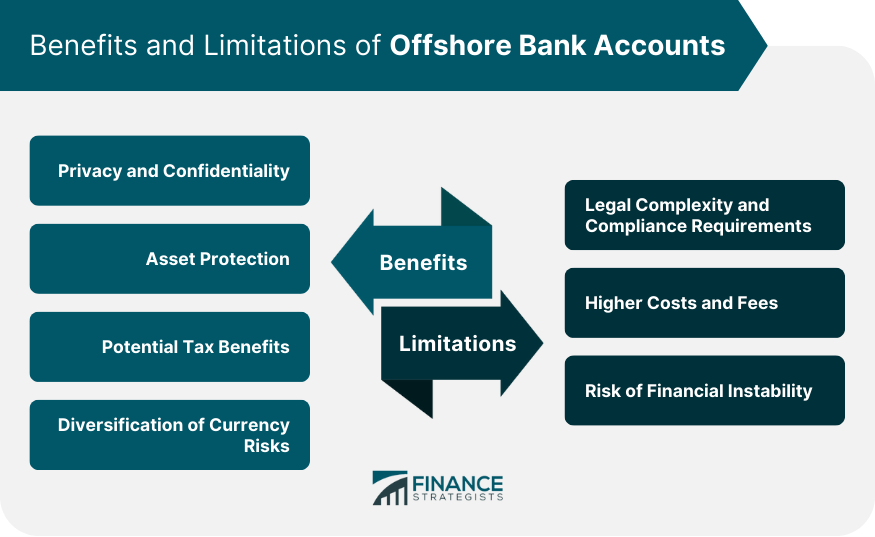The Definitive Blueprint for Successful Offshore Company Formations
Checking Out the Solutions Offered in Offshore Company Formations: What You Need to Know
Offshore company formations provide a series of services designed to help with company success while ensuring compliance with lawful requirements. These solutions can consist of business registration, lawful suggestions, and plans for personal privacy with nominee supervisors. In addition, considerations around tax obligation optimization and possession protection are vital. Comprehending these components can considerably affect one's decision-making process. The complexities of selecting the best territory and steering with regulations elevate additionally questions. What should one consider following?
Understanding Offshore Firm Frameworks
What specifies an overseas firm framework? An offshore business is typically signed up in an international jurisdiction, usually identified by positive regulative settings and confidentiality. These frameworks are created to provide legal separation in between the business's properties and its owners, allowing a series of monetary and functional benefits. Offshore companies can be established as numerous types, consisting of limited obligation companies (LLCs), corporations, or depends on, relying on the regulatory framework of the picked jurisdiction.
Trick attributes of these frameworks consist of improved personal privacy, asset security, and ease of global organization transactions. Furthermore, they usually require marginal neighborhood visibility and can facilitate the management of investments across boundaries. The choice of a details offshore territory can substantially affect the functional capacities and compliance requirements of the firm. Generally, understanding the complexities of offshore business frameworks is crucial for business owners and investors seeking to enhance their organization techniques.
Tax Benefits of Offshore Companies
Offshore business offer substantial tax benefits that can improve profitability and monetary efficiency for entrepreneur. Among the primary advantages is the possibility for decreased corporate tax rates, which can be notably lower than those in the proprietor's home country. Numerous offshore territories supply tax obligation incentives, such as tax holidays or exemptions on specific sorts of revenue. In addition, overseas business may benefit from beneficial tax obligation treaties, enabling the reduction or removal of withholding taxes on returns, aristocracies, and rate of interest. This can result in boosted cash money flow and better reinvestment chances. In addition, some overseas entities can run under a territorial tax obligation system, which only tax obligations revenue created within that jurisdiction. This framework can be particularly helpful for businesses involved in global trade or on-line services, allowing them to maximize their tax obligation obligations while preserving compliance with worldwide guidelines. Generally, these tax obligation advantages can substantially add to long-term monetary success.
Privacy and Confidentiality Features
Exactly how can local business owner secure their delicate details while profiting from global opportunities? Offshore company formations supply robust personal privacy and privacy attributes that interest business owners seeking discernment (Offshore Company Formations). Numerous territories provide nominee services, enabling people to assign 3rd parties as directors or shareholders, therefore concealing their identities from public records
On top of that, rigorous information defense regulations in countless overseas territories guarantee that delicate info remains confidential. Offshore firms usually profit from enhanced financial privacy, with laws that shield client identities and economic deals.
Furthermore, using private addresses for registered offices decreases direct exposure to public examination.
These privacy steps enable local business owner to run with better self-confidence, understanding their sensitive information is secure. By leveraging these attributes, entrepreneurs can focus on tactical growth opportunities without the continuous concern of details exposure.
Asset Defense Strategies
While guiding with the intricacies of global business, business owners should focus on property protection to protect their wide range from potential dangers. Offshore business formations provide durable methods for alleviating direct exposure to lawful insurance claims, financial institution activities, and political instability. One effective technique involves developing a limited obligation company (LLC), which separates individual possessions from organization liabilities, thereby offering a guard versus claims.
Furthermore, entrepreneurs can use depend hold assets, ensuring they stay shielded from lenders and lawful conflicts. Jurisdictions with strong possession protection legislations, such as Nevis or the Cook Islands, are usually preferred for their positive policies. Applying correct insurance policies and diversifying financial investments further improves security, lessening vulnerability to market fluctuations. Overall, utilizing these techniques within an overseas structure not only advertises wide range preservation yet also promotes long-term economic security, allowing entrepreneurs to concentrate on development and development without unnecessary problem over asset exposure.

Opening Offshore Financial Institution Accounts
Opening up offshore bank accounts involves comprehending the various account kinds available, which can satisfy different monetary needs. In addition, the documentation process is crucial, as it commonly requires details kinds of recognition and proof of home. This introduction will clear up the options and needs for individuals and businesses seeking to develop offshore banking relationships.
Account Types Offered
Offshore checking account come in various kinds, each developed to satisfy various monetary requirements and objectives. Individual accounts are customized for individuals seeking personal privacy and property protection, while corporate accounts help with business purchases and administration of firm funds. Multi-currency accounts are popular amongst worldwide financiers, enabling for transactions throughout different money without too much conversion fees. In addition, interest-bearing accounts supply interest on deposits, appealing to those looking to expand their possessions firmly. Some financial institutions also supply financial investment accounts, providing customers access to different investment possibilities. Each account kind may feature distinct advantages and features, permitting customers click for more info to choose the one that lines up ideal with their financial methods and objectives. Understanding these options is basic for effective offshore financial.
Called For Paperwork Process
To successfully open up an offshore savings account, potential customers need to prepare a collection of certain documents that satisfy regulatory requirements. This typically consists of a legitimate ticket or government-issued recognition to verify identification. Customers are likewise needed to supply evidence of house, such as an energy expense or bank declaration, dated within the last 3 months. Additionally, a thorough description of the source of funds is needed to ensure conformity with anti-money laundering guidelines. Some banks might request a company plan or recommendation letters, specifically for business accounts. Each territory may have distinct needs; consequently, seeking advice from with an expert in overseas solutions is advisable to determine all documentation is accurate and complete, promoting a smoother account opening procedure.
Compliance and Governing Considerations
Navigating the complexities of compliance and regulative considerations click here now is crucial for any kind of entity going after offshore company formations. Entities must follow various worldwide and local legislations that govern monetary tasks, tax, and corporate administration. Key guidelines usually include anti-money laundering (AML) regulations, recognize your client (KYC) methods, and coverage requirements to assure transparency.
Companies have to remain cautious regarding changes in legislation that might influence their functional condition. Failure to abide can result in serious fines, including penalties or the dissolution of the firm. Engaging with economic and lawful professionals that focus on offshore policies can supply crucial assistance in guiding with these intricacies.
In addition, recognizing the ramifications of tax treaties and worldwide agreements is fundamental for maintaining compliance. Companies should focus on developing durable conformity frameworks to reduce risks and guarantee long-lasting sustainability in their offshore endeavors.
Choosing the Right Offshore Territory
How does one figure out the most suitable offshore jurisdiction for business development? The selection of jurisdiction is important and involves a number of elements. First, one must analyze the legal framework and regulations regulating firms in possible territories. Positive tax programs, such as low or no company taxes, are commonly a key factor to consider. In addition, the political security and track record of the territory play considerable functions in making sure the security of possessions and compliance with international requirements.
The ease of access of banking solutions and the simplicity of doing company must not try this out be ignored. A territory offering robust privacy stipulations can additionally be beneficial for those looking for personal privacy. Finally, evaluating the prices connected with firm development, upkeep, and prospective lawful fees is essential. By considering these variables, one can make an informed decision, making sure that the chosen offshore territory aligns with their service objectives and functional needs.

Often Asked Questions
For how long Does the Offshore Firm Formation Process Normally Take?

The overseas firm development process typically takes anywhere from a few days to a number of weeks. Offshore Company Formations. Variables affecting this timeline consist of territory, documents efficiency, and certain service companies associated with the formation procedure
What Are the Preliminary Expenses Entailed in Establishing an Offshore Business?
The initial prices for setting up an offshore firm can vary commonly, usually incorporating registration charges, legal costs, and surcharges for solutions like financial institution account setup and conformity, often amounting to numerous hundred to a number of thousand dollars.
Can Individuals Form Offshore Companies Without Professional Support?
People can practically create offshore business separately; however, they often encounter complex legal and regulatory needs. Offshore Company Formations. Professional assistance is recommended to navigate these difficulties effectively and guarantee conformity with appropriate legislations and laws
What Documents Are Required for Offshore Company Enrollment?
The documents needed for offshore firm enrollment typically consist of recognition proof, a thorough company strategy, evidence of address, and, in some jurisdictions, a statement of beneficial possession and resolutions from directors.
Exist Ongoing Maintenance Charges for Offshore Firms?
Ongoing upkeep charges for overseas business are commonly needed to guarantee compliance with regional policies. These costs may include yearly revival fees, registered agent services, and accounting, varying by jurisdiction and specific business structure.
